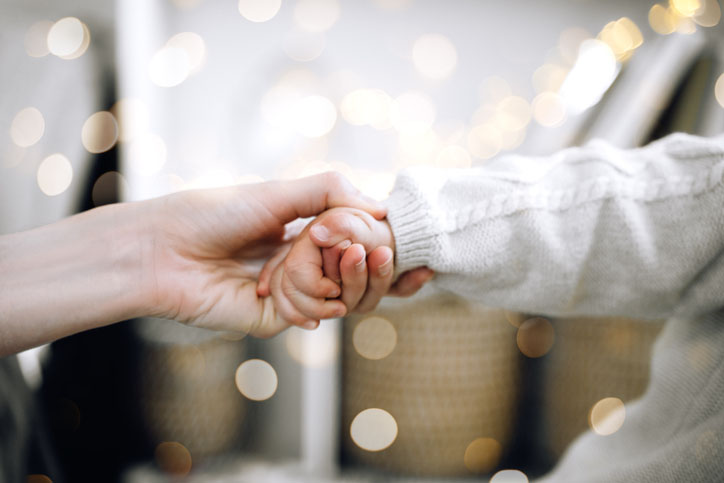What made this election different from all other elections? The Arab vote.
As the polls closed Tuesday on Israel’s national election, one of the most striking stories was how Israeli Arabs broke a pattern of disengagement from the electoral process and voted en masse.
The result, according to the first exit polls, was that a new joint Arab list received 13 mandates, the third-largest number after Likud and the Zionist Union.
Their success was partially due to the decision to merge by four smaller Arab parties representing communist, Arab nationalist, Islamic and civil-rights-oriented Arabs. As their chair they selected Ayman Oudeh, a 41-year-old charismatic and moderate leader.
“Like every Arab citizen today, I’m excited to vote and be a part of history at a turning point that will fundamentally change the reality of life, specifically for Arab citizens, but for all citizens in the country as well,” Oudeh told reporters as he cast his ballot. “I call on everyone to go out and vote this morning, and to believe that it can be better here. That we, Arabs and Jews, can create a better future for our children.”
Arabs make up 20 percent of Israel’s population. While Israel’s Declaration of Independence guarantees equal rights for all its citizens, the reality in the Jewish state is that Arabs suffer from discrimination, lack of opportunity and unequal resource allotment.
That has been a significant roadblock to growth and development for all Israelis. Think of it in American terms. Latinos make up 17.1 percent of the U.S. population, and African-Americans 13.2 percent. No rational person would assert that America could thrive if either of these minority communities, which make up a smaller percentage of the population than Israeli Arabs, just stagnates.
But crucial to real success for Israeli Arabs will be gaining a foothold in the democratic process, something Jews and Arabs both have resisted over the years.

Members of the Arab List in Nazareth on March 17. Photo by Ammar Awad/Reuters
Now, in this election cycle, although some analysts predicted a slightly better result, the Arab vote has made an impact.
“Israelis have to start seeing the fact that we have 20 percent minority in this country, and you have to see the minority and give them a place in this country,” Rabbi Donniel Hartman of the Shalom Hartman Institute said during a live post-election analysis Tuesday on jewishjournal.com.
The reaction to a stronger Arab electorate from some quarters was desperate, but not surprising.
In a last ditch, pre-election attempt to motivate his base, Prime Minister Benjamin Netanyahu posted a YouTube video appealing directly to voters by raising the specter of “the left” bringing busloads of Arab voters to the polls.
“The Arabs are voting in droves!” he said, staring straight into the camera. “The right is in danger.”
Commentator Ori Nir pointed out the hypocrisy of these fears.
“For years, [Israel’s] establishment (justifiably) boasted high Arab turnout,” Nir tweeted. “Today, [Israel’s] leader refers to it as negative. How sad!”
Regardless, Arabs now see that with the right leadership and strategy, their parties can have a significant impact. If the two major parties form a unity coalition, for instance, that would make the Joint Arab List the main opposition party — and give it a far greater national and international platform.
In a pre-election interview with the web site Mondoweiss, Oudeh laid out an agenda that is far from radical or frightening. He does not reject Israel, as many Arabs have since the shock of 1948. He does not just resist and protest — the strategy Arabs adopted after the infamous 1976 Land Day riots. In his soft-spoken, serious way, he is reaching out to all of those feeling ethnic and economic discrimination in Israel — not with anger, but with hope.
“We have a specific focus,” he said. “We aim to strengthen our partnership with the democratic Jewish camp, to the extent that there is a true democratic camp. The coming year or two will be the years for strengthening the relationship between the Arab and Jewish democratic camps.”
The result may be a truly integrationist Arab party, allied with Jewish and Arab Israelis who see the full inclusion of all Israel’s citizens as crucial to its future.
This has been an active focus of nongovernmental organizations like New Israel Fund and others for some time now, a pet project of politicians on the left (Yitzhak Rabin) and the right (Moshe Ahrens), and the not-so-subtle subtext of the best television show Israel ever produced, “Arab Labor.”
And although some Jews find it convenient to give up on Arabs, the remarkable fact is that Arabs have not given up on the promise of Israel.
Recent polls show that fully 65 percent of Arabs in Israel say they are proud to be Israeli. That number has been trending up for some time. It should be a source of satisfaction, not worry.
While there is virtually no chance the Arab and Jewish parties will join in a coalition this time around, this election points to the possibility of that in the not-so-distant future.
That’s a good thing. All over the Middle East, Arabs face murderous, unstable and repressive regimes that stifle opportunity and dole out political rights with an eyedropper. Meanwhile, in Israel, Arabs are beginning to help the Jewish state live up to its democratic promise — or, in a word, its hope.
Rob Eshman is publisher and editor-in-chief of TRIBE Media Corp./Jewish Journal. E-mail him at robe@jewishjournal.com. You can follow him on Twitter and Instagram @foodaism.























 More news and opinions than at a Shabbat dinner, right in your inbox.
More news and opinions than at a Shabbat dinner, right in your inbox.